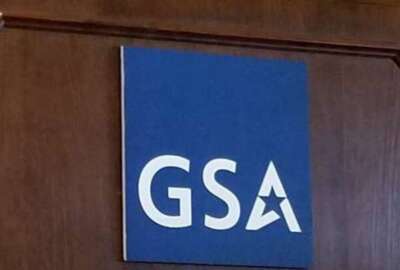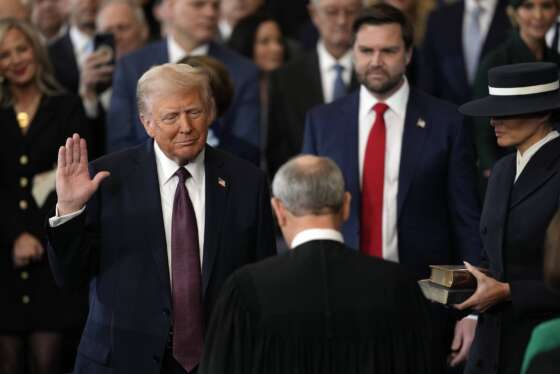
Progress and Opportunities in Federal Shared Services
Federal shared IT and other services make all the sense in the world. So why aren’t more agencies doing it? And what will it take to expand use of shared...
An expert panel of federal financial and IT experts explored these questions and came up with some useful insight. Participants were:
- Dave Mader, controller, Office of Management and Budget
- Beth Angerman, executive director of the Unified Shared Services Management team at the General Services Administration
- Bill Beyer, principal at Deloitte Consulting LP
- Chip Fulghum, chief financial officer and deputy secretary for management at Homeland Security
- Thomas Muir, director of support services at the Veterans Affairs Department
In part one of this webinar, the group discussed the outlines of the shared service federal universe. Share service usage is a cross-agency platform, or CAP, goal of OMB policy. Participants agreed policy can go far, but legislation backing up the shared services policies would do a lot to push the government toward its goals. Shared services are becoming a way of life in large manufacturing and service corporations because the C-suite of executives all agree on its importance and benefit. Namely, savings and the opportunity to redeploy assets toward new applications and innovative services.
During the second segment of the webinar, panelists noted the need for existing federal shared services providers to obtain the investment dollars they need to be able to offer best-in-class services such as payroll or financial management. They noted that the scale of taking on a large agency – VA has 330,000 employees, DHS 166,000 – matches that of the largest corporations. So agencies need orderly plans for moving their lines of business or functions to shared services providers, whether federal or commercial.
In part three, panelists discuss the elements of a playbook for successful migration. Whether cloud or other type of shared services provider, it’s important for service level agreements to be clear and precise, and for agency data to be fully extractable should that need arise. Panelists agreed a full move to shared services will require capacity of both federal and commercial providers. Antiquated systems can be an impediment to migration, but shared services benefits can also provide an incentive to modernize.
Moderator

Tom Temin, Federal News Radio
Tom Temin has been the host of the Federal Drive since 2006. Tom has been reporting on and providing insight to technology markets for more than 30 years. Prior to joining Federal News Radio, Tom was a long-serving editor-in-chief of Government Computer News and Washington Technology magazines. Tom also contributes a regular column on government information technology.
Panelists
 Dave Mader, Controller, Office of Management and Budget
Dave Mader, Controller, Office of Management and Budget
David Mader is the Controller for the Office of Management and Budget, and temporarily served as the Acting Deputy Director for Management from July to November of 2015. He was confirmed as Controller by the United States Senate on July 17, 2014. He previously served as Senior Vice President for Strategy and Organization at Booz Allen Hamilton, a position held since 2007. From 2004 and 2007, he was a Principal at Booz Allen Hamilton focusing on strategy and organization. From 2003 to 2004, Mr. Mader was the Managing Director of the Public Sector practice of Sirota Survey Intelligence. Before joining Sirota Survey Intelligence, Mr. Mader held various senior executive positions at the Internal Revenue Service from 1971 to 2003, including Acting Deputy Commissioner, Acting Deputy Commissioner for Modernization and CIO, Assistant Deputy Commissioner, and Chief for Management and Finance. Mr. Mader received a B.S. from Mount St. Mary’s University. He is the recipient of both the Distinguished and Meritorious Presidential Rank Awards, the Treasury Secretary’s Honor Award and is a Fellow in the National Academy of Public Administration.
 Beth Angerman, Executive Director of Unified Shared Services Management, General Services Administration
Beth Angerman, Executive Director of Unified Shared Services Management, General Services Administration
Elizabeth Angerman is a member of the Senior Executive Service and is the Executive Director of the new Unified Shared Service Management Office in GSA, responsible for working with the new governance board to implement the enterprise-wide vision for mission-support functions across government. Prior to GSA, Beth was named the Executive Director of the Office of Financial Innovation and Transformation (FIT) in the Treasury Department in August 2013 to address the need for greater efficiency and transparency in the Federal financial environment. Prior to FIT, Beth was the Deputy Assistant Commissioner for Government-wide Accounting in the Bureau of the Fiscal Service, responsible for managing the daily operations supporting the production of the Daily Treasury Statement, Monthly Treasury Statement, and Annual Financial Report of the United States Government. Beth also served Treasury as a program manager over multiple government-wide system implementations. She began her career as a consultant in the private sector, working with global companies to streamline payroll, HR, accounting, and IT functions to achieve greater operational efficiencies. Beth resides in Silver Spring, MD with her husband and two sons.
 Chip Fulghum, Chief Financial Officer and Deputy Secretary for Management, U.S. Department of Homeland Security
Chip Fulghum, Chief Financial Officer and Deputy Secretary for Management, U.S. Department of Homeland Security
Chip Fulghum was confirmed as the Chief Financial Officer for the Department of Homeland Security (DHS) on September 23, 2014. He also serves as the Department’s Deputy Under Secretary for Management. Mr. Fulghum joined the Department as the Budget Director in the Office of the CFO in October 2012, following a notable career as an officer in the United States Air Force.
As Deputy Under Secretary for Management, Mr. Fulghum leads several lines of business across the Department. These business areas include financial management, human capital, information technology, procurement, security, and asset management. He also provides support and guidance to the Department’s acquisition oversight process and represents DHS in a number of management-related interagency committees.
As Chief Financial Officer, Mr. Fulghum oversees the $60 billion budget of DHS, including the development and justification of the budget request, and budget execution, and reporting. He directs all financial management activities throughout the department, some of which include financial reporting, successful outcomes during annual financial audits, modernization of financial systems and financial assistance policy and oversight. He has stewardship of internal controls to reduce waste, fraud, and abuse and coordinates Government Accountability Office-Office of Inspector General inquiries across the department. He oversees the targeted mission area analysis to support decisions on the direction and use of resources, including life cycle cost estimates for large department programs.
 Thomas Muir, Director of Support Services, U.S. Department of Veterans Affairs
Thomas Muir, Director of Support Services, U.S. Department of Veterans Affairs
Thomas (Tom) Muir was appointed the Director for Support Services on April 27, 2015. He is responsible, as part of the MyVA transformation effort, to achieve support services excellence by optimizing the organization, functions and activities of the Department of Veterans Affairs (VA) core support functions that focus on the delivery of world-class services to VA facilities and organizations that directly serve Veterans. Mr. Muir is a career member of the Senior Executive Service (SES) since 2008.
 Bill Beyer, Principal, Deloitte Consulting LP
Bill Beyer, Principal, Deloitte Consulting LP
Bill Beyer is a principal at Deloitte Consulting LLP with more than 30 years of private and public sector experience. He has been a leader in Shared Services and Business Transformation in public and private sector. At Deloitte, Bill is a senior leader in the Federal practice which generates revenues of approximately $2 billion. He is responsible for 20 of the most strategic accounts in the Federal practice and leads Shared Services for the Civilian Sector.
Copyright © 2025 Federal News Network. All rights reserved. This website is not intended for users located within the European Economic Area.
Tom Temin is host of the Federal Drive and has been providing insight on federal technology and management issues for more than 30 years.
Follow @tteminWFED
Related Stories






